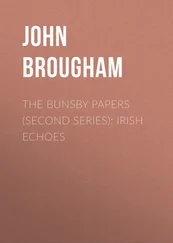George Foote - Flowers of Freethought (Second Series)
Здесь есть возможность читать онлайн «George Foote - Flowers of Freethought (Second Series)» — ознакомительный отрывок электронной книги совершенно бесплатно, а после прочтения отрывка купить полную версию. В некоторых случаях можно слушать аудио, скачать через торрент в формате fb2 и присутствует краткое содержание. Жанр: foreign_antique, foreign_prose, на английском языке. Описание произведения, (предисловие) а так же отзывы посетителей доступны на портале библиотеки ЛибКат.
- Название:Flowers of Freethought (Second Series)
- Автор:
- Жанр:
- Год:неизвестен
- ISBN:нет данных
- Рейтинг книги:5 / 5. Голосов: 1
-
Избранное:Добавить в избранное
- Отзывы:
-
Ваша оценка:
- 100
- 1
- 2
- 3
- 4
- 5
Flowers of Freethought (Second Series): краткое содержание, описание и аннотация
Предлагаем к чтению аннотацию, описание, краткое содержание или предисловие (зависит от того, что написал сам автор книги «Flowers of Freethought (Second Series)»). Если вы не нашли необходимую информацию о книге — напишите в комментариях, мы постараемся отыскать её.
Flowers of Freethought (Second Series) — читать онлайн ознакомительный отрывок
Ниже представлен текст книги, разбитый по страницам. Система сохранения места последней прочитанной страницы, позволяет с удобством читать онлайн бесплатно книгу «Flowers of Freethought (Second Series)», без необходимости каждый раз заново искать на чём Вы остановились. Поставьте закладку, и сможете в любой момент перейти на страницу, на которой закончили чтение.
Интервал:
Закладка:
Vive Jesus, de qui l'amour Me va consumant unit et jour.
Vive Jesus, vive sa force, Vive son agreable amore.
Vive Jesus, quand il m'enivre D'un douceur qui me fait vivre.
Vive Jesus, lorsque sa bouche D'un baiser amoureux me touche.
Vive Jesus, grand il m'appelle Ma soeur, ma colombe, ma belle.
Vive Jesus, quand sa bonte, Me reduit dans la nudite;
Vive Jesns, quand ses blandices Me comblent de chastes delices.
"Live Jesus, whose love consumes me night and night. – Live Jesus, live his force, live his agreeable attraction. – Live Jesus, when he intoxicates me with a sweetness that gives me life. – Live Jesus, when his mouth touches me with an amorous kiss. – Live Jesus, when he calls me, my sister, my dove, my lovely one. – Live Jesus, when his good pleasure reduces me to nudity; live Jesus, when his blandishments fill me with chaste delight." – And this erotic stuff is for the use of girls!!
THE JEWISH SABBATH
Dr. Edersheim's Life of Jesus contains some interesting appendices on Jewish beliefs and ceremonies. One of these deals with the Sabbath laws of the chosen people, and we propose to cull from it a few curious illustrations of Jewish superstitions.
The Mishnic tractate Sabbath stands at the head of twelve tractates on festivals. Another tractate treats of "commixtures," which are intended to make the Sabbath laws more bearable. The Jerusalem Talmud devotes 64 folio columns, and the Babylon Talmud 156 double folio pages, to the serious discussion of the most minute and senseless regulations. It would be difficult to understand how any persons but maniacs or idiots could have concocted such elaborate imbecilities, if we did not remember that the priests of every religion have always bestowed their ability and leisure on matters of no earthly interest to anyone but themselves.
Travelling on the Sabbath was strictly forbidden, except for a distance of two thousand cubits (1,000 yards) from one's residence. Yet if a man deposited food for two meals on the Friday at the boundary of that "journey," the spot became his dwelling-place, and he might do another two thousand cubits, without incurring 'God's wrath. If a Jewish traveller arrived at a place just as the Sabbath commenced, he could only remove from his beasts of burden such objects as it was lawful to handle on the Lord's Day. He might also loosen their gear and let them tumble down of themselves, but stabling them was out of all question.
The Rabbis exercised their ingenuity on what was the smallest weight that constituted "a burden." This was fixed at "a dried fig," but it was a moot point whether the law was violated if half a fig were carried at two different times on the same Sabbath. The standard measure for forbidden food was the size of an olive. If a man swallowed forbidden food of the size of half an olive, and vomited it, and then ate another piece of the same size, he would be guilty because his palate had tasted food to the prohibited degree.
Throwing up an object, and catching it with the same hand was an undoubted sin; but it was a nice question whether he was guilty if he caught it with, the other hand. Rain water might be caught and carried away, but if the rain had run down from a wall the act was sinful. Overtaken by the Sabbath with fruit in his hand, stretched out from one "place" to another, the orthodox Jew would have to drop it, since shifting his full hand from one locality to another was carrying a burden.
Nothing could be killed on the Sabbath, not even insects. Speaking of the Christian monks, Jortin says that "Some of them, out of mortification, would not catch or kill the vermin which devoured them; in which they far surpassed the Jews, who only spared them upon the Sabbath day." This interesting fact is supported by the authority of a Kabbi, who is quoted in Latin to the effect that cracking a flea and killing a camel are equally guilty. Dr. Edersheim evidently refers to the same authority in a footnote. On the whole this regulation against the killing of vermin must have been very irksome, and if the fleas were aware of it, they and the Jews must have had a lively time on the Sabbath. We cannot ascertain whether the prohibition extended to scratching . If it did, curses not loud but deep must have ascended to the throne of the Eternal; and if, as Jesus says, every idle word is written down in the great book of heaven, the recording angel must have had anything but a holiday on the day of rest.
No work was allowed on the Sabbath. Even roasting and baking had to be stopped directly the holy period began, unless a crust was already formed, in which case the cooking might be finished. Nothing was to be sent, even by a heathen, unless it would reach its destination before the Sabbath. Kabbi Gamaliel was careful to send his linen to the wash three days before the Sabbath, so as to avoid anything that might lead to Sabbath labor.
The Sabbath lamp was supposed to have been ordained on Mount Sinai. To extinguish it was a breach of the Sabbath law, but it might be put out from fear of Gentiles, robbers, or evil spirits, or in order that a person dangerously ill might go to sleep. Such concessions were obviously made by the Rabbis, as a means of accommodating their religious laws to the absolute necessities of secular life. They compensated themselves, however, by hinting that twofold guilt was incurred if, in blowing out one candle, its flame lit another.
According to the Mosaic law, there was to be no fire on the Sabbath. Food might be kept warm, however, said the Rabbis, by wrapping it in non-conductors. The sin to be avoided was increasing the heat. Eggs might not be cooked, even in sand heated by the sun, nor might hot water be poured on cold. It was unlawful to put a vessel to catch the drops of oil that might fall from the lamp, but one might be put there to catch the sparks. Another concession to secular necessity! A father might also take his child in his arms, even if the child held a stone, although it was carrying things on the Sabbath; but this privilege was not yielded without a great deal of discussion.
Care should be taken that no article of apparel was taken off and carried. Fortunately Palestine is not a land of showers and sudden changes of temperature, or the Rabbis would have had to discuss the umbrella and overcoat question. Women were forbidden to wear necklaces, rings, or pins, on the Sabbath. Nose-rings are mentioned in the regulations, and the fact throws light on the social condition of the times. Women were also forbidden to look in the glass on the Sabbath, lest they should spy a white hair, and perform the sinful labor of pulling it out. Shoes might not be scraped with a knife, except perhaps with the back, but they might be touched up with oil or water. If a sandal tie broke on the Sabbath, the question of what should be done was so serious and profound that the Rabbis were never able to settle it. A plaster might be worn to keep a wound from getting worse, but not to make it better. False teeth were absolutely prohibited, for they might fall out, and replacing them involved labor. Elderly persons with a full artificial set must have cut a sorry figure on the Sabbath, plump-faced Mrs. Isaacs resolving herself periodically into a toothless hag.
Plucking a blade of grass was sinful. Spitting in a handkerchief was allowed by one Rabbi, but the whole tribe were at loggerheads about spitting on the ground. Cutting one's hair or nails was a mortal sin. In case of fire on the Sabbath, the utensils needed on that day might be saved, and as much clothes as was absolutely necessary. This severe regulation was modified by a fiction. A man might put on a dress, save it, go back and put on another, and so on ad infinitum . Watering the cattle might be done by the Gentile, like lighting a lamp, the fiction being that he did it for himself and not for the Jew.
Читать дальшеИнтервал:
Закладка:
Похожие книги на «Flowers of Freethought (Second Series)»
Представляем Вашему вниманию похожие книги на «Flowers of Freethought (Second Series)» списком для выбора. Мы отобрали схожую по названию и смыслу литературу в надежде предоставить читателям больше вариантов отыскать новые, интересные, ещё непрочитанные произведения.
Обсуждение, отзывы о книге «Flowers of Freethought (Second Series)» и просто собственные мнения читателей. Оставьте ваши комментарии, напишите, что Вы думаете о произведении, его смысле или главных героях. Укажите что конкретно понравилось, а что нет, и почему Вы так считаете.












